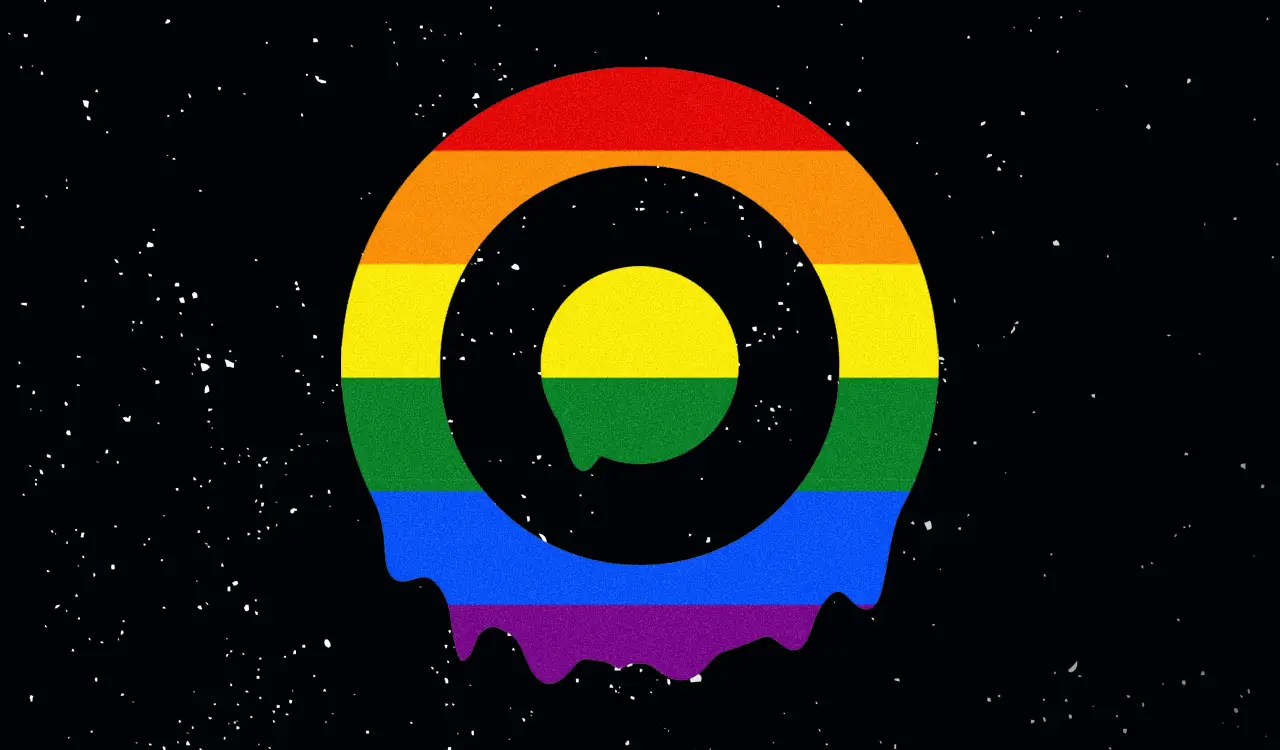In today’s world, where corporate responsibility, culture wars, and social progress are more or less bound to become intertwined strands of any major national discussion, Minnesota-based Target Corporation’s recent decision to move to the back or completely withdraw selected Gay Pride/LGBTQ+ merchandise from its stores marks a new low in Fortune 500 cowardice. Specifically, what has earned Target my rancor is the company’s puzzling response to conservative pressure over its decision to prominently display LGBTQ+-related clothing and merchandise in some of its stores in the lead-up to Gay Pride in June. And to add insult to injury, being the proud Minnesotan that I am who takes solace in how our state has become, quite arguably, the standard-bearer for progressive values and policies across the entire nation at a time when historically marginalized communities are under near-constant attack from the Right, I was appalled when I saw my very beloved hometown retail brand cave into the antics of a small number of right-wing but highly vocal anti-gay zealots.
Taking A Stand
In case you have been too busy going about your life and haven’t followed this latest bruhaha, here is what you need to know: Target has once again found itself embroiled in a controversy surrounding its positioning on gay/queer/trans rights. (If you recall, back in 2016, hundreds of thousands of people signed a pledge to boycott Target over its inclusive restroom and dressing-room policy which forced it to ultimately reverse course and spend $20 million to expand bathroom options at all of its U.S. stores so transwomen wouldn’t be allowed into women’s-only areas of its stores.)
This time what has Target in the hot seat is its “2023 Pride Collection” which it began rolling out in May in stores across the country in the lead-up to Pride Month in June. Target has said that it has offered an assortment of merchandise and clothing to mark its annual Gay Pride celebrations for more than a decade, but this year, with the nation’s cultural wars at a fevered pitch and everyone in America’s C-Suites seemingly walking on eggshells, Target’s decision to not only keep the Gay Pride merch but to curate a much larger selection of products and display them even more prominently than in years past initially came across as bold and assertive – a model of strong corporate leadership.
This year’s line was bolder and edgier than those from years past and showcased products from an array of queer-owned companies such as Kingston, New York’s Ash+Chess, and Abprallen, a UK-based LGBTQ+ company that sells goth-themed designs in pastel hues.
I don’t think I am going out on a limb here by assuming that Target’s marketers and buyers must have been at least nominally aware that their plans to roll out this year’s Pride collection were coming at a point of nationwide backlash against the LGBTQ+ community, both in rhetoric and in policy. For example, according to the American Civil Liberties Union, over 491 anti-LGBTQ+ bills have been filed in statehouses this year, many aimed at denying access to gender-affirming health care.
But for all of Target’s initial mojo, its resolve quickly melted under the heat of a small number of right-leaning conservatives who took issue with the retailer’s beefed-up Pride displays which featured, literally and figuratively, a rainbow of different clothes and merch. And this is the existential crisis that nearly all retail leaders face in an increasingly factious society. Whatever decision they make is bound to alienate some aggrieved party. (Tires Plus – you may be safe.) The main problem here is that Target wants rightly to cater to its LGBTQ+ customer base with merchandise that it wants, and the question is should fringe groups be allowed to usurp these business decisions by imposing their own beliefs in the forms of harassment and online trolling?
Foresight Is Better than Hindsight
To suggest that Target was somehow caught off-guard by right-wing backlash suggests to me that either Target needs better tea-leaf readers in their corporate strategy group or that they completely underestimated the zeitgeist of the conservative clap back against the trans movement in particular. Either way, I firmly believe that if Target decided to go all-in on Pride month, the company should have been prepared to steel itself against the inevitable TikTok and YouTube trolls and the so-called aggressive behavior that some store employees encountered.
On social media, there were of course the sundry assortment of Southern soccer moms who were proudly cutting up their Red Cards and the calls from conservative digital influencers to boycott the chain retailer altogether. Target execs should have anticipated as much. But perhaps what they didn’t foresee was that this latest spat would play out in the era of fake news and newly energized conspiracy peddling. The disinformation campaign unleashed in right-wing social media circles suggested Target was pushing a collection of non-binary kid swimsuits and other apparel specifically geared at grooming children and incentivizing them to go trans. This is absolutely not true.
Prevention Policy
As it relates to the harassment of store employees and aggrieved and offended customers toppling over display stands and messing up end caps, isn’t that why Big Box retail stores have security staff? If a customer is threatening physical violence towards a store employee, isn’t that a matter for law enforcement to take up?
Target’s reaction to the Pride backlash was quite the case study in pusillanimity: “Since introducing this year’s collection, we’ve experienced threats impacting our team members’ sense of safety and well-being while at work,” Target said in a statement last week. “Given these volatile circumstances, we are making adjustments to our plans, including removing items that have been at the center of the most significant confrontational behavior.”
Minnesota Congresswoman Angie Craig (D), the first openly gay mother serving in Congress, said it was “disappointing to see Target give in to threats and harassment from those who do not want to see Pride celebrated in their community. It is important that we do everything we can to keep employees safe in their workplace, but giving in to bullies only emboldens their behavior.”
Confirmation Bias
There is ample speculation that suggests that Target’s decision may have been influenced by the pushback during the recent Bud Light imbroglio in which parent Anheuser-Busch InBev signed on Dylan Mulvaney, a trans influencer, to promote the nation’s top beer brand.
(Not to go down a rabbit hole, but Anheuser-Busch InBev’s decision to defend Mulvaney and then ultimately cave and pull back the campaign enabled Bud Light’s marketers to successfully and quite remarkably achieve quite the feat: they alienated its conservative consumer base and its legions of LGTBQ+ fan and their allies; sales have continued to plummet while heads are rolling back at HQ. But I digress…)
To avoid a similar backlash, Target allegedly held an emergency meeting to discuss its LGBTQ+ Pride merchandise. And their leadership team’s decision to bow down to the demands of a vocal minority represents. in my opinion, a staggering display of betrayal of true corporate leadership.
Instead of standing firmly in support of LGBTQ+ communities and upholding their values, the retail giant opted for the path of least resistance. In doing so, Target has sent a disheartening message that it is willing to compromise its principles and marginalized communities to appease a small but vociferous faction. Moreover, by moving LGBTQ+ merchandise to the back of the store in some Southern stores penalizes those who champion inclusivity.
Action Has Consequences
To me this is not so much about the LGBTQ+ issue per se, but about how Target is, albeit not purposefully, enabling and empowering a small but vocal and potentially violent group to wield illegitimate influence over the masses. If Target’s CEO Brian Cornell or Chief External Engagement Officer Laysha Ward – both of whom I highly respect – had asked me for my advice, I would have counseled the company to stand firm and confront the bullies head-on by doubling down on security, leaning into, and owning the issue that Target itself bet on initially.
Succumbing to pressure from fringe groups sets a most perilous precedent, suggesting that corporate decisions on whatever the issue at hand may be can be swayed by a vocal minority rather than the principles and aspirations of the majority. This alarming trend of minority rule in retail poses a threat to progress and inclusivity. And who loses? The customer. Shame on you, Target.





